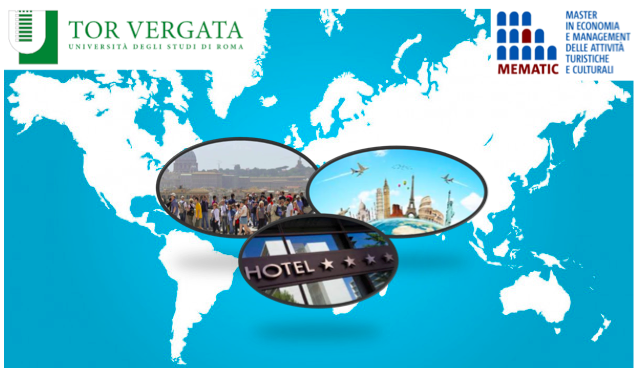Economics and Management of Tourism and Cultural Activities

The lessons proposed in this course were carried out in the context of the XIII Edition 2019-2020 of the Post-Graduate Course in Economics and Management of Tourism and Cultural Activities - MEMATIC of the University of Rome “Tor Vergata”. They contribute to increasing the entrepreneurial and managerial competences, as well as digital skills necessary for those who work (or intend to work) in tourism firms (decision makers) and in institutions (policy makers) including religious ones, operating at different levels in the four areas of the tourism system: Destinations, Accommodation, Mobility, and New Technologies. In particular, these lessons allow to raise the understanding of how to govern, direct, organize, and manage tourism firms and destinations in the current global competitive dynamic. In addition, they shed light on the opportunity to consider tourism firms and destinations as interdependent systems, interacting with each other, and constantly evolving with their environments (general/institutional, competitive, and natural). In fact, due to the unprecedented challenge of the COVID-19 pandemic and its extremely intensive impact on the tourism sector, the development of innovative sustainability-oriented business models and new holistic approaches to the governance and management of tourism firms and destinations – involving entrepreneurs, policy makers and all stakeholders – plays a key role for the progress of the whole society towards sustainability. In fact, according to art.3 of UNWTO Global Code of Ethics for Tourism, «Tourism [is] a factor of sustainable development».
The course "MEMATIC" addresses 5 main topics through 23 different lessons. The lessons are composed by: videos, slide, essays, and academic articles.
This webinar is devoted to the analysis of the tourism sector in Italy and Europe that, in the current framework, can guide the tourism recovery through the resilience of entire communities and countries. The focus of the webinar is the solidarity collaboration between firms, institutions, and citizens as vital to face tourism challenges, primarily linked to the impact of the Covid-19 pandemic. The need for immediate, collective, and courageous action was highlighted to give concreteness to shared goals based on a common vision of the future. In addition, emphasis was given to the role that research and education play in generating the necessary knowledge and competences to ensure that tourism continues to be a driving force for employment and for a development increasingly sustainable and human.
